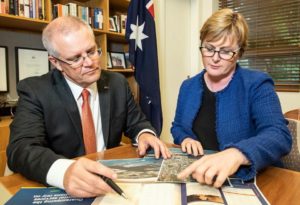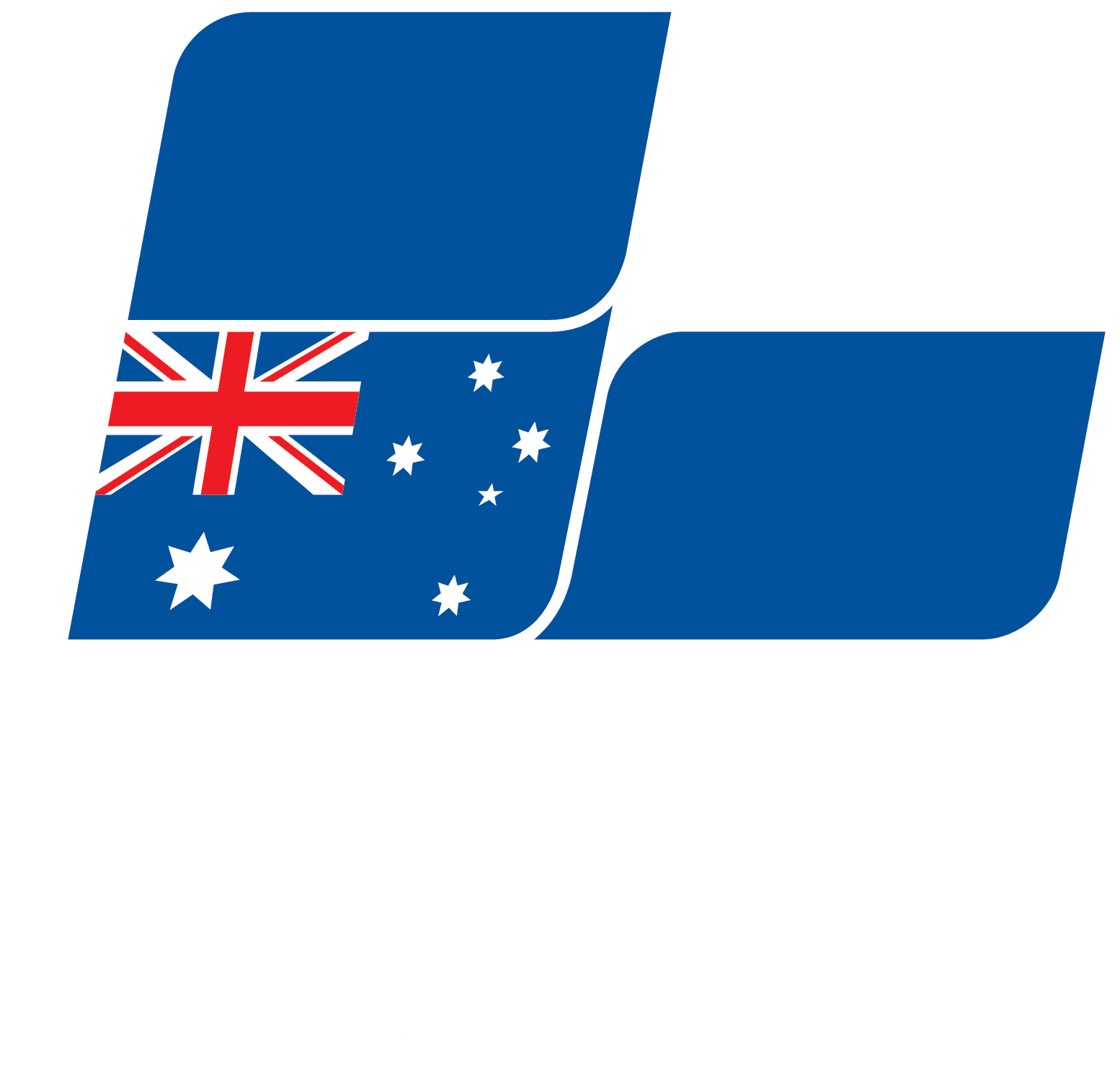BILLS: Electoral Legislation Amendment (Electoral Funding and Disclosure Reform) Bill 2017 – 15 November 2018
Senator REYNOLDS (Western Australia—Assistant Minister for Home Affairs) (10:28): I too rise to speak in support of the Electoral Legislation Amendment (Electoral Funding and Disclosure Reform) Bill 2017. I would start by making the observation that, while most Australians would agree that only Australians should have the power to influence the outcome of our national elections, Australia is one of the few Western democracies where foreign money can still be used to influence our own domestic elections.
The introduction of this bill was in response to the Joint Standing Committee on Electoral Matters Second interim report on the inquiry into the conduct of the 2016 federal election: foreign donations. I was very privileged and proud to have chaired that committee and to have authored the report. One of the observations I make up front is that, despite broad consensus within Australia on the principle of banning foreign donations, there has been significant and also, I think, very important public debate as to who and what activities these bans should be applied to.
I think at the heart of this debate lies the fact that election campaigning today is very different from that in the mid-1980s, when the majority of the current provisions were written. There wasn’t the internet, there wasn’t the avenue of social media and there weren’t many of the other things that go along with modern campaigning. The campaign period has, without question, moved well beyond the time in-between the issuing and the return of the election writs. Campaigning is now 24/7, 365 days a year. It goes for three years. Campaigning today is largely issues based. When I started campaigning, it was based on political party philosophies, policy promises and announcements. It is now far more issues based on issues that are longitudinal. Campaign messaging today is communicated via a wide range of mediums by a much wider range of entities, including charities, industry groups and also religious institutions.
I was delighted as chair of JSCEM that when the inquiry was conducted the government adopted the majority of the committee’s 15 unanimous recommendations. I’d like to place on record my gratitude and thanks to all the members of the Joint Standing Committee on Electoral Matters. We went through what was a very difficult inquiry to come up with those unanimous recommendations. What was at the heart of all our deliberations was the fact that we needed very strong, transparent and very clear electoral laws that were in our sovereign interest. Despite significant public debate—sometimes quite fractious debate—the committee always remained focused on what was in our national interest and what was in the interest of all Australian voters. I think the report reflected that, and the government has adopted the majority of those recommendations.
Before I go any further on the detail of the bill that has flowed from that report, I note that I was sitting here listening to Senator Waters. I have to say that, despite the great respect I have for Senator Waters as a representative of her state, I think everything she said then demonstrates the need for this legislation. It reminded me of the debate and the discussions that we had in the committee and in public on this issue. Senator Waters was very clear on the Greens’ position. They agree with the principles, but they just don’t want them to apply to them and their own donors. The list of people she wanted banned from exercising a democratic right in this country to influence, get involved and have their say in elections includes industry which supports the coalition—banning industry from being able to donate or having donations capped—but she was completely silent on the donors who directly support the Greens and campaigned on issues for the Greens for three years in the lead-up to an election.
We heard a lot of evidence during the inquiry about Greens’ supporters and, quite often, supporters of the Labor Party cause and Labor Party issues. We’re not just talking about the unions and GetUp!, which openly and clearly support the Labor Party and frequently the Greens but, of course, never the coalition. What she was completely silent on are the environmental charities that have clearly—not even hidden but in plain sight—campaigned in support of the re-election of those opposite. Again, it is their right to do so, as long as they are not in breach of ACNC guidelines or in breach of the Electoral Act. During the inquiry, peak bodies of multiple charitable and philanthropic organisations admitted that many of those charitable organisations were in breach of the Electoral Act. In fact, they said that hundreds of supporters of the Greens, and occasionally the Labor Party, had been in breach of strict legislative requirements and strict liability requirements of the Electoral Act wilfully and in plain sight for years and years and years. They knew they had two obligations—the ACNC and the Electoral Act—so, guess what? The ACNC guidelines were much looser and enabled them to do a lot more on behalf of political parties in their campaigns. They chose to ignore the Electoral Act. A strict liability law is never acceptable and they should, I think, have been prosecuted for that, but they haven’t been. In terms of hypocrisy, if the Greens were serious about applying the principles, they would apply them equally to their own donors and supporters.
What are the facts in this case? Well, according to their own published records, the top 10 environmental charities have had income of over $700 million over the past 10 years. I can tell you now, and I can tell everybody in this chamber and everybody listening, that the majority of that money, I suspect very strongly, does not go into saving koalas, panda bears and whales. It goes into domestic campaigns on issue advocacy that now moves well beyond issue advocacy into campaigning for the election of those opposite and, in particular, the Greens. At every election we now see ads from GetUp!, from the unions and also from environmental groups that are entirely consistent with each other and support Labor and Greens election policies. That is okay, but, again, it has to be transparent, it has to be visible and it has to be subject to the same electoral laws.
How this is relevant to this current debate is that a lot of the money that comes into these organisations is foreign money. It comes into larger charities that have international linkages with large, benevolent foundations. That money comes into this country, it is washed around these environmental groups and then suddenly it pops up in local campaigns against sitting MPs on environmental issues which, guess what, are exactly the same issues that the Greens and the Labor Party are campaigning on in the election. They have made those issues salient and relevant to the elections. It has been sourced, and washed around a bit, from foreign sources.
To the Greens I say, I’m sorry, but there is rank hypocrisy in saying, ‘Yes, we want these laws to apply to this group of people who coincidentally all support the coalition and their policies, but we don’t want all of our money touched, and we don’t want that looked at because they’re charities who are advocating for us, not campaigning for us.’
Senator Waters: That’s the opposite of what we’re proposing. We’re prosing a cap on all donations.
Senator REYNOLDS: Well, let’s call a spade a spade. This money is going to your re-election. For this side and our supporters who support our policies in the support of business, jobs, growth and all of the things that we stand for, you have to be honest enough to admit that this money is going to your re-election.
Senator Waters interjecting—
Senator REYNOLDS: There was $700 million in environmental groups alone.
The ACTING DEPUTY PRESIDENT ( Senator Sterle ): Senator Reynolds, can you please take your seat. Senator Waters, you had 20 minutes uninterrupted, and you didn’t hold back on your attacks, so I would ask and urge that Senator Reynolds be heard in silence.
Senator REYNOLDS: Thank you for that courtesy. That is foreign money coming in—in my words and from my observations from the inquiry and all the evidence we had. To put it pretty simply: with the support that is completely not transparent—it is unaccountable under the Commonwealth Electoral Act and it is unaccountable under the ACNC guidance—this money means that, pretty much, all the Labor Party and, particularly, the Greens have to do at the next election is register their candidates as candidates for the election. Between GetUp!, between the unions and between these environmental groups that have no accountability in this election process and system, as all other donors do, you don’t have to do anything. They are already out there running your campaign for you. They are already out there running the election messaging for you. You have to do nothing, and not a single cent of that is accountable.
Senator Waters interjecting—
Senator REYNOLDS: Senator Waters, if you don’t believe that, you have a look at all of the election campaigning for the recent by-elections that occurred and how much of that expenditure has been made under the Commonwealth Electoral Act returns.
Senator Waters interjecting—
Senator REYNOLDS: It is not. So, therefore, you are benefitting from what the American equivalent of PACs and Super PACs is. Of course you want us and our donors to be exempt from this because you have somebody out there running all of your campaigns for you and funding them with foreign money. Of course you don’t want this to happen.
Senator Scullion: On a point of order: we have listened in silence to a contribution that I would have made plenty of interjections on had I not respected the Senate. I wonder if you, Acting Deputy President Sterle, could ask Senator Waters to provide the same respect.
The ACTING DEPUTY PRESIDENT: Thank you, Senator Scullion. There is no point of order. I have already requested that Senator Reynolds be heard in silence.
Senator REYNOLDS: I’m not surprised that Senator Waters does not like what I have to say, because the truth hurts. There is nothing in what I have said that can be refuted publicly or privately, because it is all on the public record. This legislation is important to make the money that goes not just to those on this side of parliament and the people who support our policies but to all in this chamber and all in that other place. All of it must be subject to the same rules, the same transparency and the same guidelines. This is why I’m very supportive of the JSCEM recommendations that provide greater clarity for charities and also align definitions as closely as possible with the intent and principles of the bill. It is to put all of us and all of those who would seek to support us on the same footing. I think we’ve got the balance right between ensuring regulatory and compliance burdens are minimised for donors large and small.
One of the most important principles—even the Greens representative was very supportive of these principles that went into this report—is that Australian citizens must have visibility of who is seeking to influence their votes and must also have the confidence that foreigners are not seeking to influence the outcome of their votes. The committee’s multipartisan deliberations on this issue, particularly through JSCEM, have been underpinned by some important national principles: national sovereignty, voter transparency and the preservation of democratic freedoms. Again, I think the 15 report recommendations, which are reflected throughout this bill, do reflect the principles of sovereignty, transparency and the preservation of our democratic freedoms and rights.
Committee members and the government also believe that reform to the Commonwealth Electoral Act should be consistent with four principles which have guided and continue to guide JSCEM: transparency, clarity, consistency, and also compliance—transparency via visible timely disclosure; clarity about what is required and by whom; consistency of regulations so that the regulations capture all participants and support an equitable and level playing field; and compliance through enforceable regulations with minimal practical compliance burdens. I commend the government because I believe those four principles are well and truly reflected in this bill.
With these comments I commend the government for their support of a new and easily accessible transparency register, which was a recommendation of the committee. This will provide voters with the ability to readily identify who is seeking to influence their vote. Again, this puts more power and control of their vote with the voters themselves. This register will also assist all third parties, particularly those not compliant with the current legislative requirements—of which, self-confessed, there are many—to better understand and now comply with the regulatory obligations. So I commend the government for their constructive response to the JSCEM recommendations and I strongly and wholeheartedly commend this bill to the Senate. It is the right thing for our country and for the upcoming elections.



